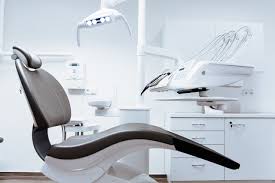
DENTAL PRACTICE VALUATION
Dental Practice Valuation follows the same principles as the valuation of other businesses. Many concerns are the same, such as the practice being dependent on a single individual, and how many referrals are obtained because of the individual. There are generally three methods of valuation for businesses. Dental practice valuation sometimes utilise a fourth method, a rule of thumb. In a professional practice, the value of the intangibles is more likely to constitute most of the overall value than in the case of other businesses and goodwill is more likely to be personal (professional) than in other businesses.
“Professional” goodwill derives from the individual practitioner’s reputation and personal success in the profession, and the trust and respect that the individual practitioner has engendered in his or her clients.
“Practice” goodwill relates to the firm’s ability to continue to generate earnings without the presence of any particular professional. Location, computer systems, staff, operating procedures, and a recurring client base are all elements of practice goodwill.
What is most appropriately used now in a Dental Practice Valuation is usually the Income Approach, which generally doesn’t distinguish between goodwill value and asset value. It only cares about the return available, particularly in excess of what the fair market compensation is for that practice. One thing is paramount in a Dental Practice Valuation, and that is that the valuer has the experience and qualifications to provide a valuation that is accepted for both merger and acquisition or litigation purposes.
Valuing a dental practice is a complex process that requires consideration of various factors. Dental practice valuation is typically done for purposes such as selling or buying a practice, obtaining financing, estate planning, or partnership buy-ins. Here are some key factors that are commonly taken into account in the valuation of a dental practice:
Revenue and Profitability:
Historical and projected revenue and profits play a crucial role. A buyer will want to assess the financial health of the practice.
Patient Base:
The number and type of patients, as well as patient retention rates, are important. A stable and diverse patient base is often seen as more valuable.
Location:
The geographic location of the practice can significantly influence its value. Practices in high-demand areas or areas with a growing population may be valued higher.
Facility and Equipment:
The condition of the physical space, dental equipment, and technology in the practice is considered. Up-to-date facilities and modern equipment can add value.
Staff and Contracts:
The quality and stability of the staff, as well as any existing contracts, are important. Long-term relationships with skilled and reliable staff can contribute to the practice's value.
Patient Records and Intellectual Property:
The completeness and organization of patient records and any proprietary systems or intellectual property associated with the practice are considered.
Reputation and Goodwill:
The reputation of the practice within the community, online reviews, and overall goodwill are critical. A positive reputation can attract new patients and enhance the practice's value.
Competition:
The level of competition in the area can affect valuation. A practice in an area with limited competition may be valued higher.
Legal and Regulatory Compliance:
Ensuring compliance with all relevant laws and regulations is crucial. Any potential legal issues or regulatory non-compliance can impact the valuation.
Market Trends:
Understanding current market trends in the dental industry, including changes in patient demographics, technology, and treatment methods, is important.
Economic Conditions:
Broader economic conditions and trends may also be considered as they can impact the overall demand for dental services.
It's common for a combination of methods, including income-based, market-based, and asset-based approaches, to be used in dental practice valuations. It's advisable to seek the expertise of professionals such as dental practice appraisers, accountants, or consultants who specialize in healthcare valuation to ensure an accurate and fair assessment.
The principle of Business Reports and Values, Lee Goldstein, has been involved in Business Valuations since 1985. He holds the following qualifications:
Double Major Degree in Accounting and Finance
Diploma in Forensic Accounting
Graduate Diploma in Valuation
Advanced Certificate of Business
Advanced International Certificate in Intellectual Property.
Lee has conducted numerous intellectual property valuations covering a diverse range of industries and is often called upon to provide expert testimony in judicial matters. Lee has valued businesses and intellectual property worth over $3.2 billion.
Lee Goldstein has been the Triennial Certificate holder and Licensee of a Business Broking Company since 1992.
Ready to find out more?
Drop us a line today for a free quote!
